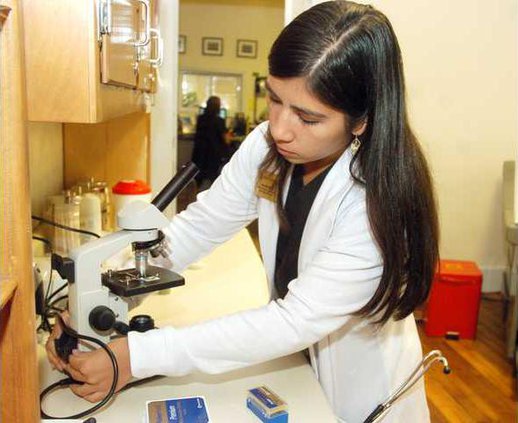Brenau University officials expect to admit students next fall in the school’s first doctoral program — nursing practice.
The move will put Brenau among a handful of institutions in Georgia to offer the program.
“It’s not a classical Ph.D., but focused on developing nursing leadership to be able to be at the table as we work on health care reform in our country,” Graduate Dean Gale Starich said.
The program must first win approval by the university’s main accrediting board, the Southern Association of Colleges and Schools. If accepted, Brenau should seat its first students in the program in August, Starich said.
The new program will cover seven semesters and center on the advanced clinical aspects of nursing. It will also train students to become advocates for change in their field.
Valerie Mac, a student in the master-level nursing program, said a prime reason she selected Brenau was because of its move toward a doctoral program. She hopes to be among the second wave of students to enroll, after she completes her master’s degree.
“It will help us solve issues in the practice such as ways to see more patients faster,” Mac said.
Brenau spokesman David Morrison said each of the school’s graduate programs are need-driven. The demand for health care professionals is growing, as North Georgia faces a shortage of doctors and nurses, he said.
As a result, the health care science program at the college has greatly expanded over the years. Brenau trustee Robin Smith Dudley, who graduated from the school’s nursing program in 1976, said she remembers when there was only one registered nurse program available.
Today, the programs are available at many of Brenau’s campuses.
“Many of the graduate programs that Brenau has offered and will offer in the future will really place Brenau on the map for being a leader in the health care science industry,” Dudley said.
Starich said the push to begin a doctoral program began three years ago. The school hired a consultant to complete a feasibility study and officials visited other programs of its kind in the state. They also looked at outside funding sources.
“The federal government is very interested in developing clinical leadership,” she said.
Dudley said graduates of the program will have several career options, from jobs as teachers in nursing schools to chief executives at medical facilities.
The school has already taken the first several steps toward the program’s development. This week, it was approved by Brenau’s governing board.
Starich said the Southern Association of Colleges and Schools is also considering proposals for additional doctorate programs at the university — an interdisciplinary doctorate in adult education and a doctorate in occupational therapy. Both could be implemented by 2012.
Starich said the school will make a significant investment in the program and plans to hire more staff, but no additional classroom space is needed.
Brenau currently enrolls about 2,800 students, more than 900 of which are enrolled in co-educational master’s degree and specialist-level graduate programs.

